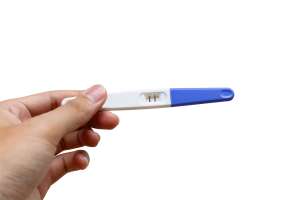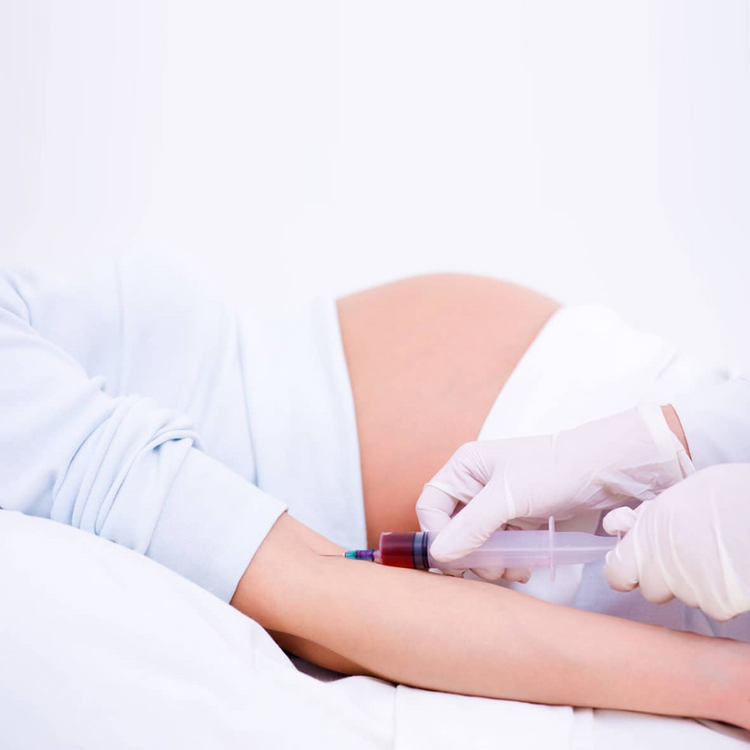Getting pregnant: Your 7 step guide
Jul 22, 2016
81772 Views
“Roop tera mastaana;
Pyaar mera deewana;
Bhool koi humse na ho jaaye”
….No no it’s ok. Aaj bhool hone do. Want a kid right?
Well, we all know what we need to do to get pregnant! So let’s not waste time with going deep (pun not intended!) into the basics. Instead, let’s focus on a few KEY things you ought to know in order to ensure that when you wish to have a child, you do it right.
1. Get off the pill…it ain’t gonna help!

If you’ve been on the pill since high school or university (not judging), stop taking it NOW! That time has passed. Your partner will
no longer make plans to deflect to North Korea when he hears that you missed your period. Ideal time to stop popping ‘em pills would be about a few months before you plan to start trying to conceive. Needless to say, this goes for other forms of hormonal birth control too. What’s that? Condoms? Well, unless your condoms are manufactured by the guys that make Polo mints (the mint with a hole!), leave them aside when you get under the covers. What’s the big fuss about? You know you hate them anyhow. C’mon we are all adults here, we can be honest. If you’re one of those women who take those injectable shots of progesterone…you know where I’m going with this right? Yep, stop taking them – ideally, about 9 months before you want to try getting pregnant. If an accident does occur, well then – Congratulations! That’s what you wanted in the first place, ain’t it?
Just remember – it usually takes your body a few cycles in order to start ovulating regularly and be primed for the daunting task that lies ahead – pregnancy! This will also give you time to track your ovulation cycle to figure out exactly when your egg comes into the field, ready to meet its one-in-a-billion date! Knowing when you ovulate is imperative if you’re looking to get pregnant (also when you’re avoiding pregnancy, but that’s not what I will discuss today.)
Obvious as this may sound, just remember – You can get pregnant any time, once you stop using birth control.
2. There’s nothing like “Too much sex”, but there is something like “the right time for sex!”
Try, try and try again! (First time in my life that I don’t wish to argue with that statement!) Malcolm Gladwell wrote about the 10,000 hour rule in his book “Outliers” right? Now I’m not saying you have to become an expert at sex, but hey – 10,000 hours seems like a good target!
But hold on – If you wish to get pregnant, having sex a couple times a day, every day, isn’t necessarily the best tactic. (Not that I don’t recommend it…personally!). What’s important is knowing WHEN you’re ovulating. No point sending out those billion swimmers everyday in search of the mermaid when she hasn’t yet come out into the open right? These days, most doctors recommend using ovulation predictor kits (OPKs) as an accurate measure of ovulation. OPKs work by detecting a surge in the levels of Luteinizing hormone (LH), which is a key hormone that peaks around 36-48 hours before you ovulate – to give you advance warnings about the arrival of the queen (or the egg in this case).
Broadly speaking, there are 2 basic types of OPKs available today – those you use for about a week prior to expected ovulation (this would be better for women whose cycles follow an almost army like regimen – if your cycle isn’t all too regular, you wouldn’t be able to make an educated guess about your time of ovulation); and those you use every day of the month – no not the calendar month (this would be the best bet if your cycles are not too regular; fair warning – these kits are pricier!)
If however, you’re NOT too fond of advancements in the medical field, you can still use the tried and tested basal body temperature (BBT) charting methods. An even more primitive approach (I’m sure even Akbar’s wife thought this was unreliable!) would be to subtract 14 days from the length of your cycle – and voila! That’s your ovulation date! (Psst – this is not accurate; you need to be certain that your cycle is super regular, or else you’re in for a surprise!)
3. Before you ovulate, Make sure you copulate!
Once the egg is released, it stays in the “field” for just 12-24 hours, while those resilient, hardy sperm can stick around (seriously, pun not intended!) in the uterus and fallopian tubes for 2-3 days! So, having sex (needless to say, it has to be unprotected sex!) before you ovulate increases the odds that when the egg makes its grand entrance, there will be a few sperm in the audience to greet it! C’est la vie – the window men have to get that date is very very tiny – better we stick around and wait for the lady to arrive eh?
Ok, so assuming you have a typical 28-day cycle (where you ovulate on the 14th day), here’s what could work:
- Soon as your period ends, start having sex a few times a week! (Yes guys, you can thank me later!). Frequent coitus ensures that you don’t miss your most fertile time – especially good for those women whose cycle length varies monthly.
- Soon as you touch day 10 of your cycle, make it a point to have sex every day!
- Remember – ovulation is not under the command of (let’s stay safe and change the name) Mr. Hutler (hehe), so day 14 does not necessarily mean day 14! When you get a positive result on your OPK (around day 12), take a leave from work that day and the next two days, and…I’m not suggesting a picnic here..Yeah you guessed it right – Have as much sex as you want/can/desire/need(?)! These 3-4 days are your PRIMO days of the month for conception. Make the most of it!
4. Do it right!
If you follow my suggestions, then at the “right” time of the month, you’re having sex as if it’s a part of your job description! Good good. But make sure you do it right. Here are some “do’s” for when you’re trying to conceive –
- Do have sex regularly. After all what do you have to lose? (apart from a good night’s sleep? Once you have a child, that’s gone anyhow – might as well start preparing!)
- Lie on your back after sex. No no, not just for the post coital pillow talk. This will help maximise your chances of getting pregnant. How? Well, the vagina naturally slopes downwards, so resting on your back allows the sperm to pool inside the uterus, giving those swimmers a better chance of reaching the egg before they get tired. Some doctors suggest keeping your legs elevated during this process, but there is no scientific proof that it aids in that process anymore than lying on your back does. (Plus, that will make for a weird pose during the cuddly sweet talks!)
- There is no right time for sex (well..duh!). Though some studies suggest that sperm count is highest during the morning, it is better to have sex just before bed. This ensures that you lie on your back for an extended period of time, enhancing your chances of achieving fertilisation!
- Forget being kinky – just “make love” now! You’re gonna be parents damnit! Keep it vanilla….ish. Ever wondered why there’s a position called the “missionary”? Yeah, because you are sort of praying to the almighty to make you parents! Also, scientifically speaking – that way you are ensuring that the penis is inserted as deep as possible to allow the swimmers to be released as close to the egg as possible, while she lies on her back – in keeping with what I wrote above this.
- Make healthy lifestyle choices – maintaining a healthy weight, inclusion of moderate physical activity in your daily routine, following a healthy diet, limiting caffeine, nicotine and alcohol and managing stress (without relying on the usual tools – coffee, cigarettes and scotch), are imperative to improving your chances of conception.
- Planning is key! Consider preconception planning: Apart from just assessing your overall health, and making the necessary lifestyle changes to improve your chances of a healthy pregnancy, you may want to assess your carrier status as well. Read more about it here. There are chances you could be a silent carrier of a genetic condition that may not be affecting you, but you could pass it on to your child. If your partner is also a carrier for the same condition, there is a 1 in 4 chance your child would have the disease! A genetic carrier screening test can help you assess this risk prior to conception!
- Vita(l)mins!!! Take them! Folic acid plays a key role in the development of your fetus. Starting yourself on a daily prenatal vitamin or folic acid supplementation regimen a few months before conception greatly reduces the risk of your child having spina bifida or other neural tube developmental defects.
5. Nope! Don’t even THINK about it!
With a set of do’s there always comes a set of “don’t”s.
- Stub out that cig! Apart from helping you lose your breathing capacity and gifting you various forms of cancer, smoking also ages your ovaries and depletes your eggs prematurely! Ouch!
- Put down that single malt! There’s a lot of research that suggests that drinking alcohol decreases fertility and can harm a developing baby. It may just be research suggesting it, but hey – are you really willing to take that risk? If you don’t know what to do with those lovely bottles of single malt you have with you, and wish to curb temptation, I can help you with that. My address is publicly listed on my facebook profile! Cheers!
- Has your doctor prescribed that medication? No? Well then don’t take it! Self medication is a stupid policy anyhow, more so when you’re trying to conceive. Even over-the-counter pills (some of them) can interfere with conception. Just ask your doctor. That’s why he studied so hard for so long!
- Say no to those lubes! Vaginal lubricants can decrease fertility. Saliva can have the same effect. If you do need a lubricant (c’mon man, step up that charm, lubes shouldn’t be needed) consider mineral oil or canola oil – or your doctor can suggest some other ones.
- Exercise is a must, but don’t overdo strenuous exercise. Research suggests that five or more hours a week of vigorous aerobic activity can impair the fertility of a woman.
- No orgasm – no worry! It may be the best feeling in the world – SURE! – but just remember, pregnancy and orgasmic bliss don’t go hand in hand (I assure you, these puns just happen, I don’t plan for them!) Though there’s speculation that orgasms boost conception by drawing more sperm into the vagina and uterus, this theory lacks scientific proof. Umm…this point is valid for women. Men – you kinda need to have an orgasm. Fairly intuitive that, but thought I’ll write it out just to cover all bases (Damnit! Another one!)
6. Alright! Time to test!

The earlier you know, the sooner you can start prenatal care, the sooner you can stop having that secretive sip of tequila and puff of the cigar. There are a vast number of DIY pregnancy tests that allow you to start testing as early as 10 days post ovulation! Having said that, it may be better to wait until the day you were expecting your period, to get the most accurate results. You miss it, you test. Simple. Even though your partner will be happy to hear about this, this time around, make sure he’s sitting down when you tell him.
Home pregnancy tests work by detecting the levels of a hormone called human Chorionic Gonadotrophin (hCG) in your urine. Produced by the placenta, hCG levels continue to rise in early pregnancy. Pregnancy tests marketed as “early response” or “early results” tests would be more sensitive for detection of lower levels of hCG.
Just remember – testing too early is quite likely to yield erroneous results – what the experts classify as a “false negative”. Here the test will claim that you’re not pregnant, when you really are!! This most likely happens because your body, at the time of testing, wasn’t producing enough hCG to allow for its detection. So before you sit down with a goblet of merlot, ready to wallow in your disappointment, wait for a few days and test again, ideally a few days after your missed period. That little plus sign will smile back at you – and now you will have to hide your alcohol bottles from your husband. (hah!)
7. The elusive plus sign is just not showing up! Oh wait…got my period! ?
Didn’t get pregnant this month? Hey hey, it’s ok. Don’t panic. Even Miracles take a little time! Read this amazing piece on what to do when conception is taking long.
Did you know that despite keeping all the aforementioned things in mind, most couples do not succeed at their first attempt. They need to keep pushing (I just can’t help the puns) until they breach the pregnancy wall. More than 50% couples get pregnant by the 6 month mark into the process of trying to conceive, while around 85% get pregnant around the 1 year timepoint! Funny how easily pregnancy seems to creep upon us when we aren’t planning for it! Damn!
Don’t jump to conclusions – you’re not necessarily infertile! Chances are you are just terrible at math, and ended up miscalculating your window of epic fertility; and so your partner’s sparmy (yeah I made up that word = sperm + army) never really got the chance to infiltrate the ovum fortress.
Fear not – just try again! (see I’ve been harping on this since the beginning – try, try and try some more. It’s not like I’m asking you to scale Mt. Everest here!) With frequent unprotected sex, most healthy couples WILL conceive within the year. Consider switching to a daily OPK if you haven’t tried that already. If you’re a young couple (less than 35 years of age) and both of you are in great health, try for at least a year prior to rushing to the doctor with that look of concern. If you’re over 35, or have a family history of infertility you can consider seeking help a wee bit earlier. Speak to your doctor or a genetic counselor.
Worst case scenario – You’re infertile. SO WHAT? This is the era of medical advancements. Treatments are available!
So stop reading this article (you’ve read enough) – it’s time to get horizontal. Don’t try to recap all that you read here – it will kill your libido!
Just remember one thing – stay psyched…and think pregnant!


